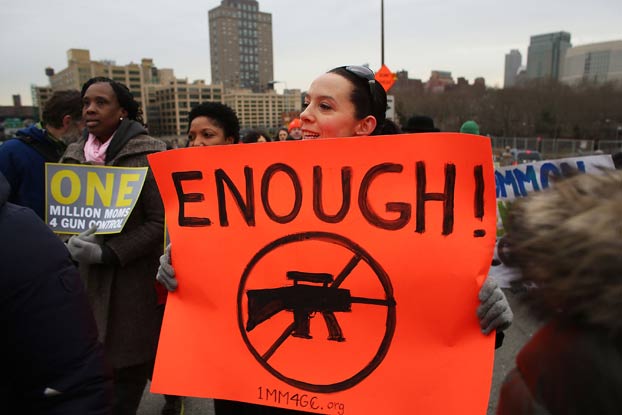Outside of personal reasons, President Obama issued his executive order on guns for two reasons. First, he is not up for reelection. Second, the Congress is.
Most experts agree that the likely policy impact of those executive orders decided by Obama would be minimal. They were modest measures that wouldn’t actually do much in the real world.
But politically, it’s a smart move by Barack Obama this was a time bomb meant to explode in the faces of the Republican majorities controlling both the House and the Senate.
Most polls show that the gun issue skews dramatically in the favor of gun control advocates, although from a practical political angle, gun rights supporters are better mobilized and tend to have a more focused impact at the ballot box.
But for a president that has nothing to lose politically, getting guns in the political mix is a no-brainer. If Republicans make this a campaign issue by trying to shut the government down or otherwise try to force the president to reverse course, it could blow up in their faces.
Of course, for most conservatives, it is a matter of dogma that the Second Amendment is impregnable to any kind of limits.
And for many of the most avid gun rights supporters, it is not good public policy to have doctors the final arbiter of deciding who is mentally capable of owning a gun and who is not. They don’t trust their doctors any more than they trust the government.
But for the most vulnerable Republicans, especially those senators who represent blue states, this issue is at best 50/50, and worst, it cuts hard against them.
Sens. Mark Kirk of Illinois, Rob Portman of Ohio, Kelly Ayotte of New Hampshire, Ron Johnson of Wisconsin, and Pat Toomey of Pennsylvania all have potentially difficult races, and while they all have avid and committed gun rights owners in their state, they also have to do well beyond the Republican base to win reelection.
There are three approaches congressional leaders can take on this issue.
They can moan and groan about the executive order and then move on to other issues. They can go to the wall to force Obama’s hand, thereby increasing the odds that this becomes a real political issue in the November. Or they can plot a legislative strategy that allows the Congress to take this issue head on, allows both bodies to work their will, and see what the product is at the end of the process.
I assume that the leaders will decide to go down path No. 1, because it is the road of least resistance. But I admit I am intrigued by the third option.
Wouldn’t it be wonderful if the Congress would actually allow an open debate and attempt to solve a significant problem that faces the American people?
A man can dream.
Read the original article on Christian Science Monitor. Copyright 2016.








